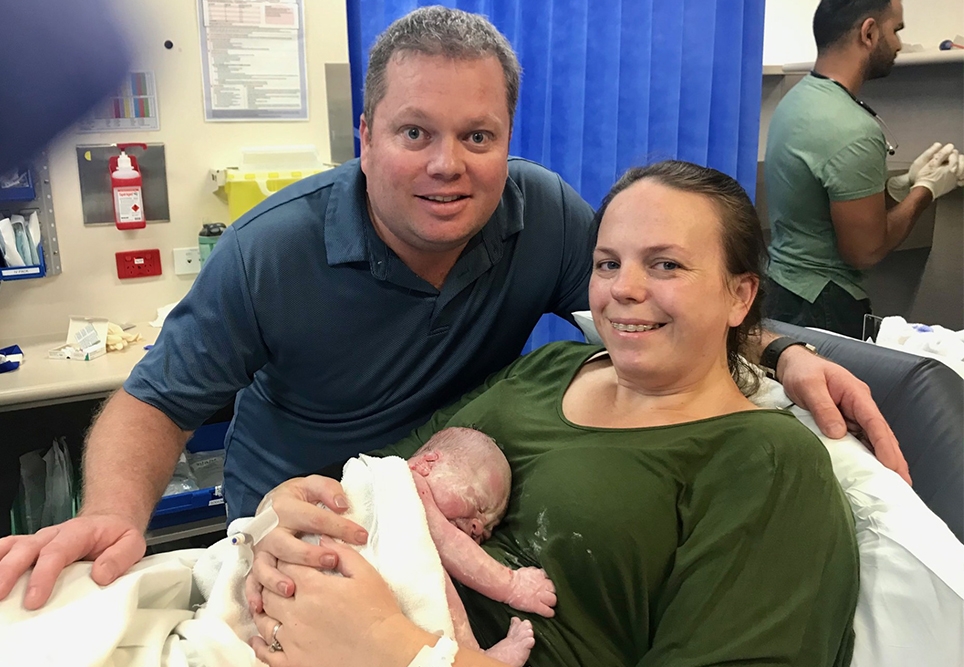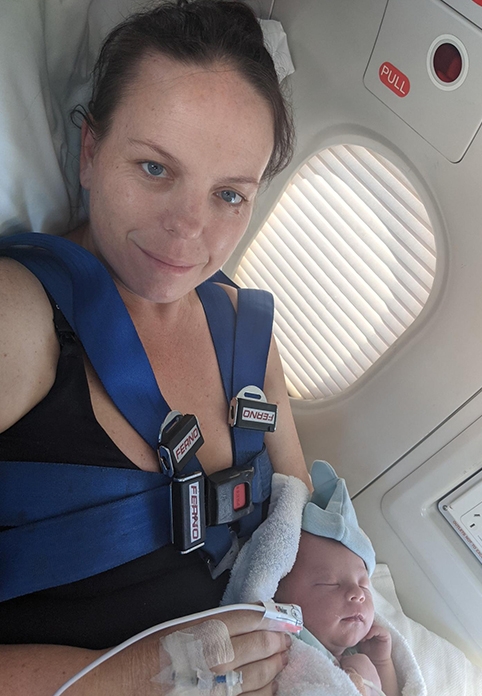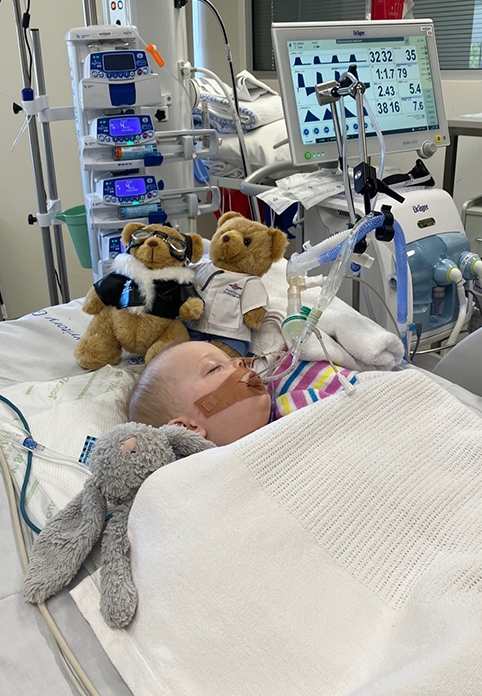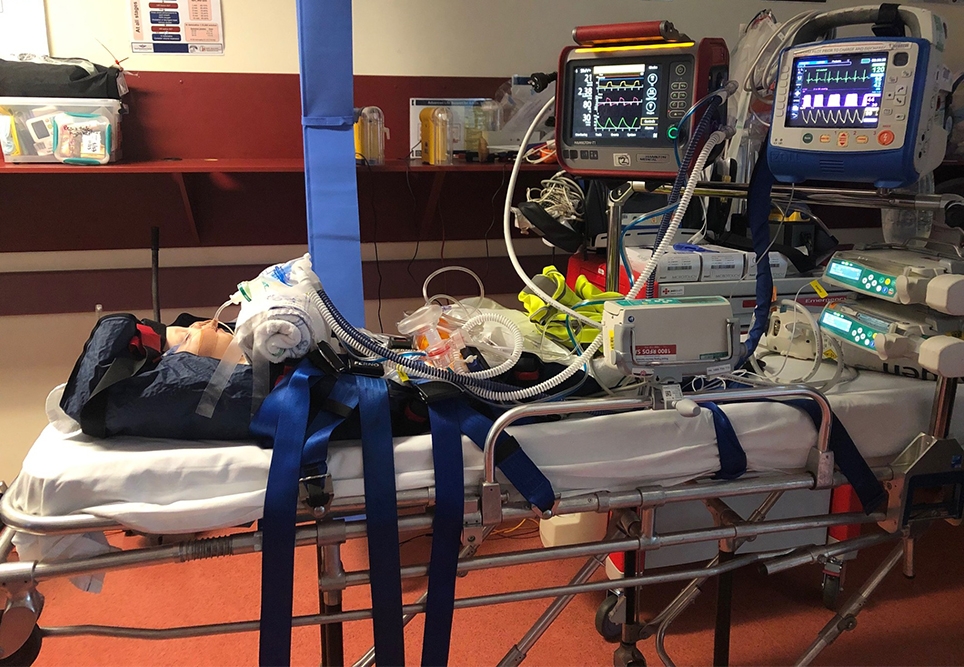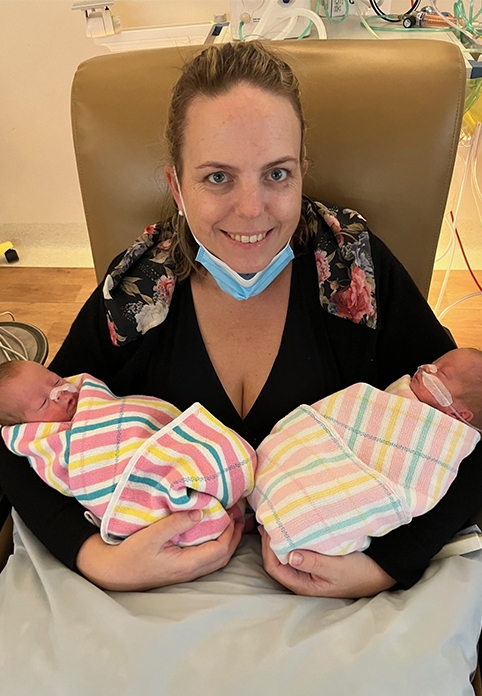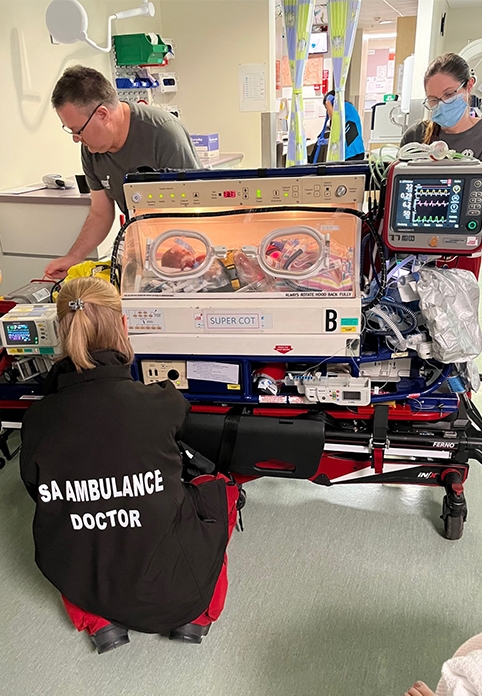This site may not work properly using older versions of Edge and Internet Explorer. You should upgrade your browser to the latest Chrome, Firefox, Edge, Safari, or any other modern browser of your choice. Click here for more information.
Your Stories
This is where we tell your stories, cover topical issues and promote meaningful initiatives.
Unsung heroes in Tennant Creek Hospital
When Olivia Ryder, a nurse with extensive experience in remote health, found herself on the other side of the healthcare system in Tennant Creek, she gained a new appreciation for the dedication and expertise of staff at the local hospital. Here’s her story.
Olivia’s personal journey, from giving birth to her first child; emergency hospital visits with her sick son the following year; to then going into labour with twins, has opened her eyes to the often-overlooked value of remote hospitals and the unsung heroes who work there.
Like most expectant mothers living in a remote area, Olivia planned to travel to a larger centre for the birth of her first child. Tennant Creek Hospital does not have a maternity unit. However, her son had other plans.
Days before she was scheduled to leave for Alice Springs, Olivia found herself in advanced labour in the emergency department of Tennant Creek Hospital, with only a curtain around her bed separating her from other patients. Her son was born three weeks early.
A team including the midwife on call and several off-duty doctors had been called in to assist.
“They had to be prepared for anything,” she explains. “And they handled everything so well. I even remember saying right after giving birth, ‘I could do that again!’”
She was later told that a woman in the next bed, clearly experienced in giving birth, was an impromptu addition to the team, calling out to her to ‘Push. Push. Push’.
A year later, Olivia’s baby son experienced a severe seizure at home and she was back in the hospital emergency department.
His condition quickly escalated.
“The emergency alarms went off, and within moments, the room was filled with staff,” Olivia recalls.
“Many didn’t know I was a nurse and didn’t realise that I understood what they were talking about. It was very different being on the other side and watching the doctors and nurses work on your own child,” she says.
“But I couldn’t fault them. They were fantastic. Despite receiving medication, the seizures continued and the team at Tennant Creek Hospital acted swiftly, treating it as a critical emergency. They intubated him, put him under anaesthesia, and inserted a breathing tube. Their response was immediate and well-coordinated.”
Olivia’s second pregnancy brought another unexpected turn – she was carrying twins. At around 27 weeks, Olivia started experiencing persistent back pain, so when she went into early labour two weeks later, it was some time before she realised the difference.
By the time she reached Tennant Creek Hospital, it was clear she was in preterm labour and, despite various medications, the labour continued to progress. Fortunately, the contractions stopped long enough to be flown to Alice Springs where she had a Cesarean section to give birth to her twins.
“On each occasion, my treatment from all these professionals was exceptional,” says Olivia.
“They have my full respect. It gave me a huge appreciation for what the hospital staff in Tennant Creek do.
“This experience has really highlighted for me how fortunate we are to have such dedicated health professionals in the remote setting. Both the clinical and non-clinical staff were so supportive. You’re not always aware of what you need in those kinds of situations, so people coming by and ensuring I had somewhere to sit, or that I had been offered food and water but also providing emotional support was a blessing.
“Many people think of remote health care as just the remote health clinics,” Olivia points out. “But hospitals like Tennant Creek are doing incredible work, with fewer resources, than in more populated settings.”
But, in other ways, there are pluses in attending hospitals like Tennant Creek, she points out.
“The flexible working arrangements at Tennant Creek mean that they have very experienced clinical staff, whether its doctors moving between hospitals or being seconded on contract. When my son had to be intubated, I was so fortunate that one of the doctors was a very experienced anaesthetist and one of the nurses experienced in paediatrics emergency and ICU for example.
“Another point to remember is that remote hospital staff have to be adaptable and multi-skilled. In big hospitals, people specialise and often stick to their area. In rural and remote settings, you have to be a jack-of-all-trades,” she says.
“Each team member brings different experiences, and together, they make it work.”
The community aspect is also quite unique, says Olivia.
“The orderly who drove me to the airstrip to meet the Royal Flying Doctor team wished me well and passed on some very kind words. That’s the kind of connection you don’t always find in larger hospitals.”
Olivia’s message is clear: “The doctors, nurses, midwives, and non-clinical staff in these remote hospitals are truly unsung heroes.”
